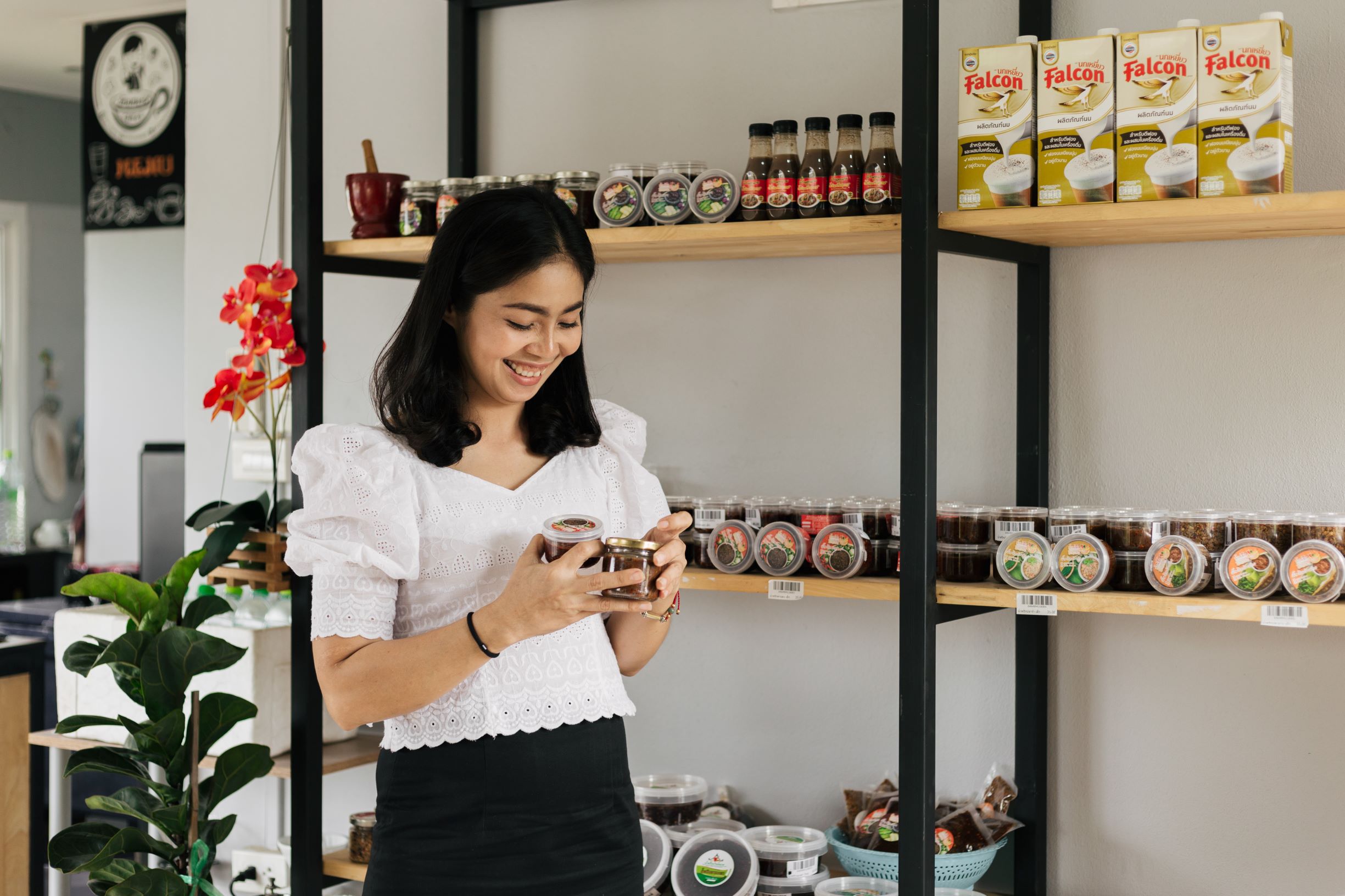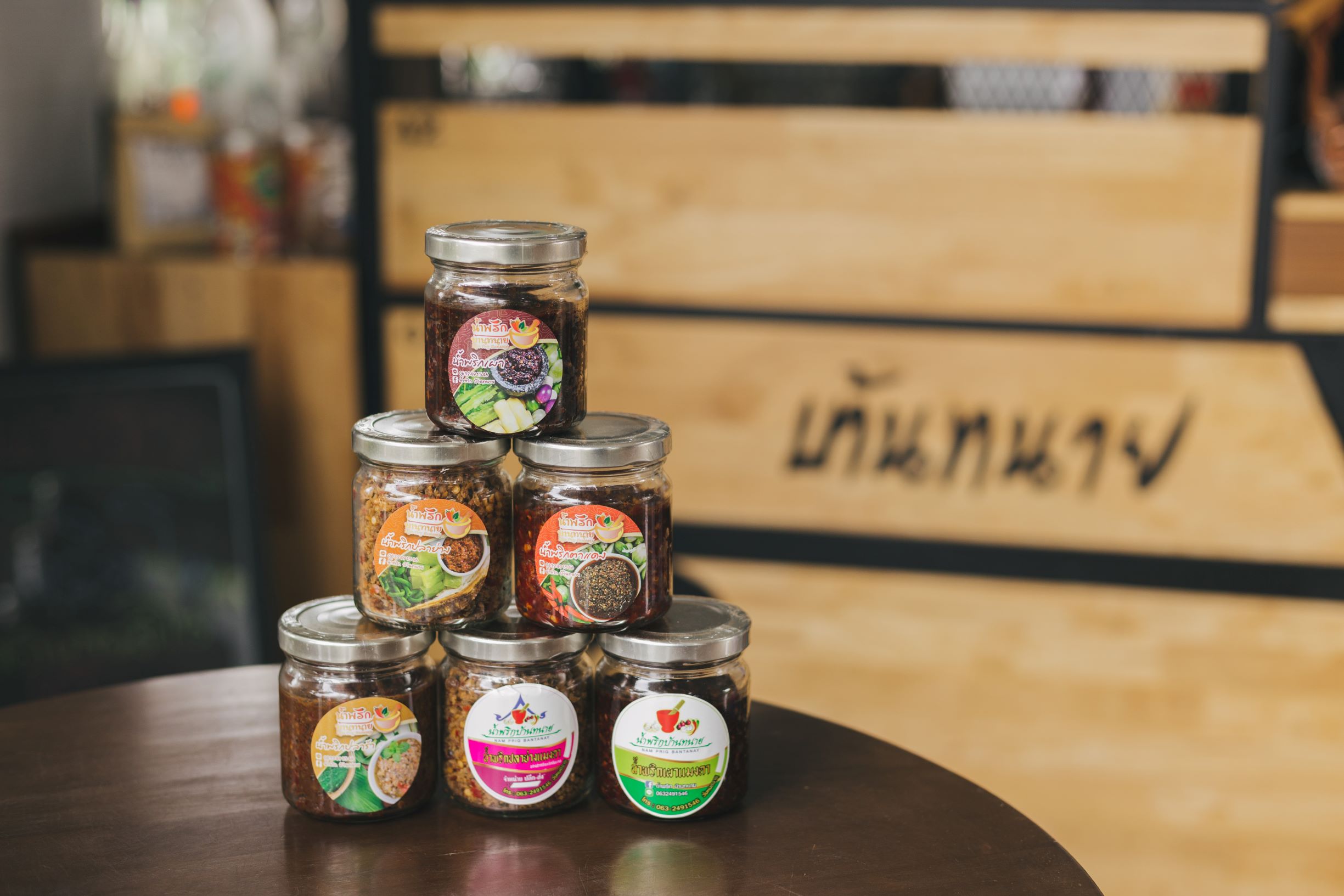
As a lawyer in Thailand’s Chainat province, Wassana “Mui” Pinnak has seen firsthand the tragic effects of debt on farmers, who face expropriation when their harvests cannot cover the costs of seedlings and fertilizer. To develop new job opportunities in the region, she launched a brand of Thai chili paste that employs locals to meticulously handcraft her family recipes. With help from dtac Net for Living and under the brand Ban Tanai, her jars of nam prik have since become an online sensation.

An Idea Born of the Plight of Thai Farmers
The issue of rural debt is particularly glaring in Chainat. In a Thai government ranking of the human development of Thai provinces, Chainat ranked 75th out of 77 (National Economic and Social Development Board, 2017). In 2015, record droughts ravaged the farmlands with devastating consequences.
“During a drought, farmers can only grow one harvest,” said Ms. Wassana. “Moreover, many of them borrowed 60,000 baht per rai [1600 sq meters or about 0.4 acres] for rice seedlings from merchants who promised high prices for the rice. Not only did the suppliers not honor those prices, but they forced the farmers to sell their land to pay their debts.”

Ms. Wassana saw that some farmers were taking odd jobs to make ends meet. And it inspired her to launch a line of chili pastes, or nam prik. Thai supermarkets are rife with industrially produced nam prik, but nothing compares to the flavor of hand-chopped, farm-grown, charcoal-roasted ingredients.
“I recognized that farmers suffered from working in paddy fields and also from being duped,” Ms. Wasan said. “So our brand of nam prik buys locally and hires locals to craft my mom’s family recipes.”
Made without preservatives, her chili paste is fragrant, flavor-packed and light on oil. Ms. Wassana’s mother initially produced 20 kilos of chili paste each week sold at fresh markets, but its popularity soared, and distribution was expanded to grocery stores.
“Distribution to grocery stores became exhausting and expensive. Being all-natural, our chili paste is both more expensive and has a shorter shelf life than mass-produced brands. We really needed to find a better way to reach our customers,” she said.
Time to Go Online
Ms. Wassana promoted her chili paste on her personal facebook account with limited success. Then, she joined an online marketing training conducted by dtac Net for Living. She learned how to develop a professional online presence, from building a brand page to photography and packaging.
Once online, she began selling beyond Chainat, and even receiving orders from wholesalers. But Ms. Wassana is committed to growing slowly and sustainably to maintain the quality of her product.
With the help of dtac Net for Living, online sales now account for 70 percent of total sales. On weekdays, she posts content on Facebook. On Fridays, she packages her products in response to online orders. And on weekends, she delivers her products to the grocery stores that are still in her network. It’s that regularity that Ms. Wassana credits to her success.
“Online marketing is about consistency. Our page must have regular updates. If your search word is nam prik, Nam Prik Ban Tanai will immediately come up,” Ms. Wassana said.

Wassana also enjoyed the advantages of going online before the COVID-19 crisis struck. With markets closed, other chili-paste providers were dealt a severe blow, just as her sales increased.
“The world has gone digital. So, we all must adapt and leverage the internet. Don’t lose hope when offline markets close down. Explore the online world and sell your products online. It’s not that difficult. Just open up to e-commerce and do it,” Ms. Wassana said.



